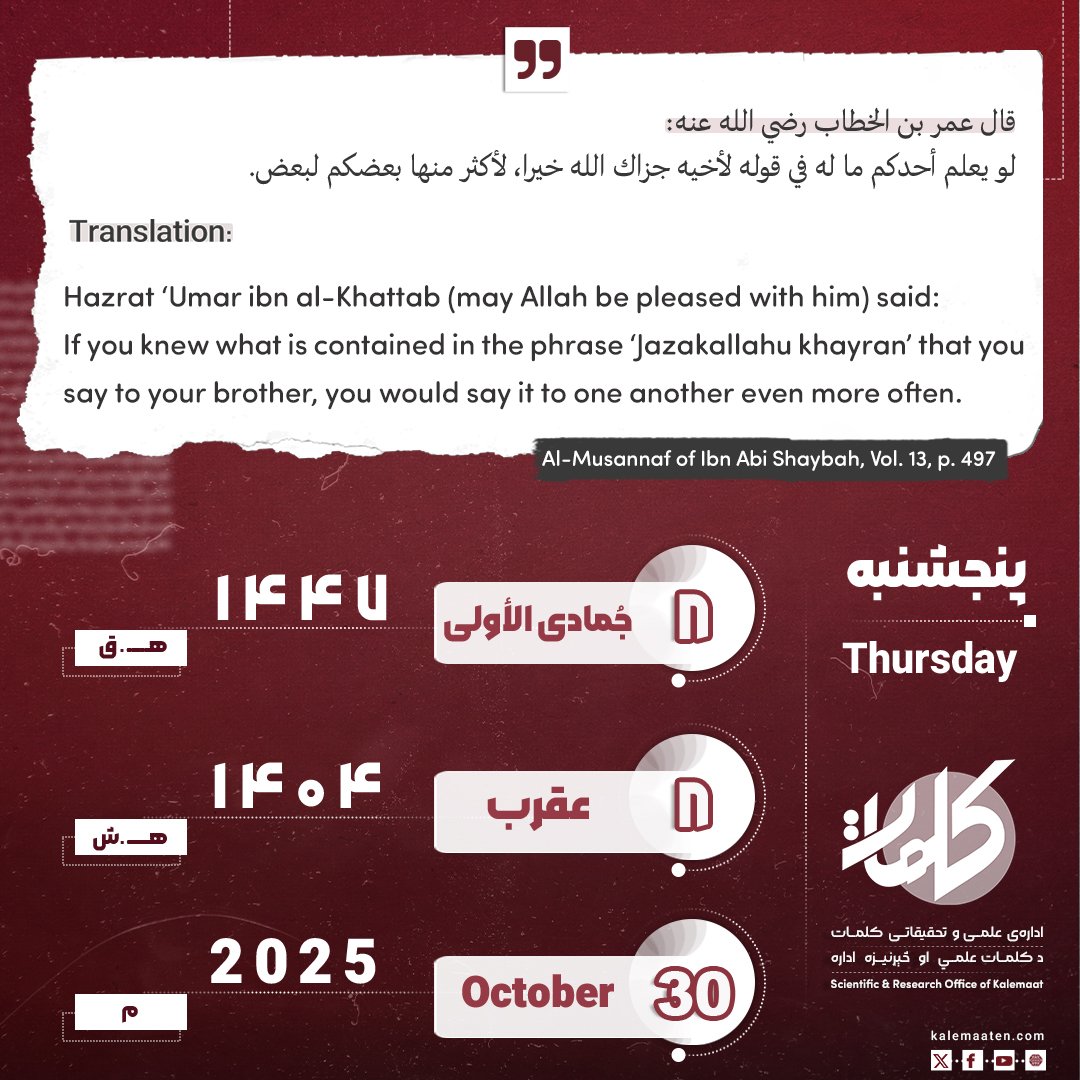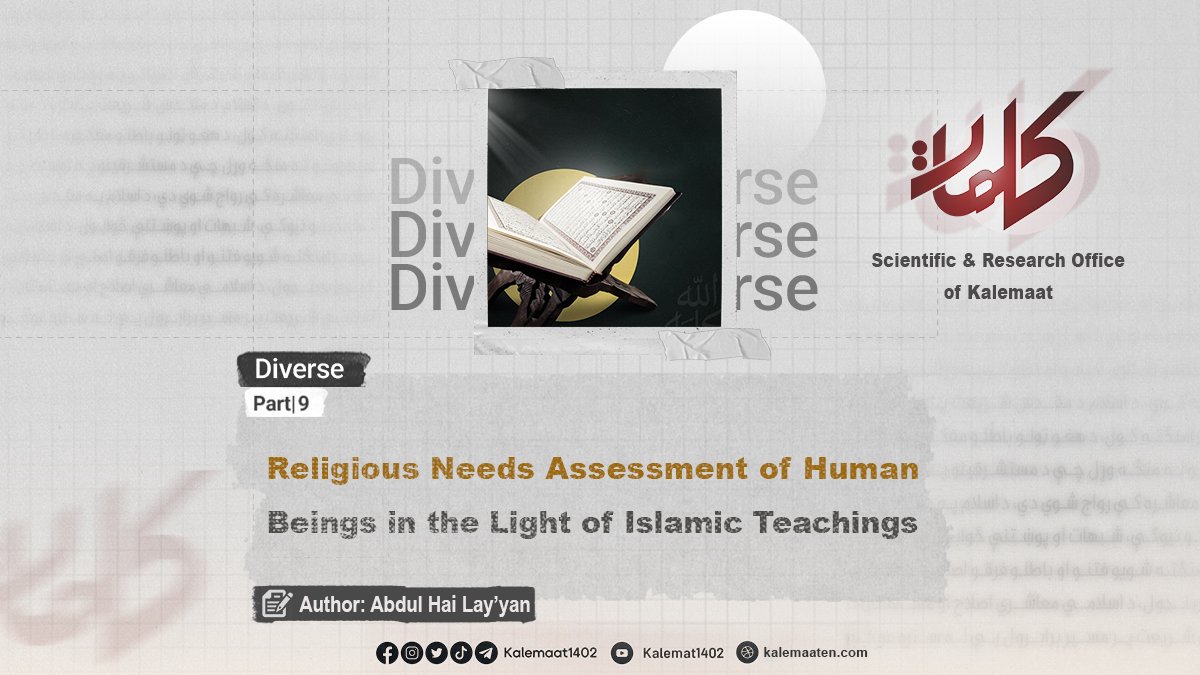Author: Abdul Hai Lay'yan
Religious Needs Assessment of Human Beings in the Light of Islamic Teachings (Part Nine)
Part Four: The Purpose of Human Creation in This World
After it has been established that this world has a Creator who brought it into existence, established its order, and set its movements in balance, sound intellect—when observing its magnificence, harmony, and the perfect cohesion among its diverse creations—realizes that its Maker possesses absolute power and perfect wisdom. Such a Creator is far above creating all of this without purpose or reason.
It also understands that the human being is tasked with developing the earth and building civilization. Man benefits from the blessings of the world more than any other creature in order to fulfill his needs and improve his life. The perfect harmony between human existence and the universe indicates that all of it has been prepared for him, and that his presence in this world is not a mere accident, but rather a deliberate act of the Almighty Creator and Sustainer of the universe.
If sound reason admits that the universe has a Creator, yet claims that He created it without purpose or wisdom, such a notion immediately becomes absurd. Reason itself is free from foolishness—so how could its Creator be otherwise?
Creation, management, and the subjugation of the universe reveal the reach of the Creator’s will and the perfection of His power. The order, beauty, and unique structure of the world reflect His complete wisdom and knowledge. Its vastness and greatness indicate the vastness of His dominion and sovereignty. The diversity and contrasts within creation show that He does whatever He wills, and the religious and worldly benefits found in it reveal the expanse of His mercy, generosity, and benevolence. All of this points to the grandeur of the purpose for which existence was brought into being.[1]
Allah says: وَسَخَّرَ لَكُم مَّا فِی السَّمَاوَاتِ وَمَا فِی الْأَرْضِ جَمِیعاً مِّنْهُ إِنَّ فِی ذَلِكَ لَآیاتٍ لَّقَوْمٍ یتَفَكَّرُونَ Translation: “And He has subjected to you whatever is in the heavens and whatever is on the earth—all from Him. Indeed, in that are signs for a people who give thought.” (Qur’an 45:13)
Therefore, it is not fitting for an intelligent person to imagine, even for a moment, that his existence is without purpose worthy of himself and his Creator.
That is why Allah says: وَمَا خَلَقْنَا السَّمَاوَاتِ وَالْأَرْضَ وَمَا بَینَهُمَا لَاعِبِینَ • مَا خَلَقْنَاهُمَا إِلَّا بِالْحَقِّ وَلَكِنَّ أَكْثَرَهُمْ لَا یعْلَمُونَ Translation: “We did not create the heavens and the earth and all that is between them for mere play. We created them only with truth, but most of them do not know.” (Qur’an 44:38–39)
And He also says: أَفَحَسِبْتُمْ أَنَّمَا خَلَقْنَاكُمْ عَبَثاً وَأَنَّكُمْ إِلَینَا لَا تُرْجَعُونَ Translation: “Did you think that We created you without purpose, and that you would not be brought back to Us?” (Qur’an 23:115)
In these verses, creating without purpose is compared to play, meaning without wisdom or intent. This implies that Allah created creation for a great purpose and did not leave man neglected to indulge like animals in mere desires.
Human beings were created above the level of animals; thus, it is inconceivable that they would have no relationship with their Creator. Even imagining such a thing is an insult to human dignity, implying that his existence is meaningless and devoid of purpose.
If this holds true for humans, it applies even more to creatures of lesser rank, for the existence of everything depends on its purpose. When the purpose ceases, existence and nonexistence become equal. This is self-evident to every rational being: a tool designed for a specific purpose becomes useless once that purpose is gone. Therefore, a noble creature like man must have a purpose worthy of his status.
How could it be that man, endowed with honor and reason, lives only for a few years in this world, consuming food and pursuing desires—and that his story ends there?
Allah the Almighty declares the great purpose for which He created mankind: وَمَا خَلَقْتُ الْجِنَّ وَالْإِنسَ إِلَّا لِیعْبُدُونِ • مَا أُرِیدُ مِنْهُم مِّن رِّزْقٍ وَمَا أُرِیدُ أَن یطْعِمُونِ Translation: “I did not create the jinn and humankind except to worship Me. I seek no provision from them, nor do I want them to feed Me.” (Qur’an 51:56–57)
The meaning of this verse is that Allah created His servants to worship Him alone. Whoever obeys Him will receive the perfect reward, and whoever disobeys Him will face the severest punishment. Allah also clarifies that He has no need of them; rather, they are in constant need of Him, for He is their Creator and Sustainer.[6]
From this verse, it becomes clear that the purpose of human creation is the worship of the One True God. This worship, however, extends beyond ritual acts—it encompasses all human behavior, intentions, and orientations in life. Man should strive, to the best of his ability, to follow the divine path in all aspects of life so that his entire existence is for Allah and with Allah.
Thus, the noble purpose that leads to human perfection and happiness—the reason for which Allah created both jinn and mankind, and to which all the Prophets (peace be upon them) called—is the worship of the One True God. This worship includes knowledge, love, repentance, devotion to Him, and turning away from all else besides Him. The perfection of worship depends on the knowledge of Allah; the more a person knows his Lord, the more complete his worship becomes. That is the very reason Allah created humankind—not because He needs them, but so that they may fulfill the purpose of their existence.
Continues…
Previous Part
References:
[1] ʿAbd al-Raḥmān ibn Nāṣir al-Saʿdī, Taysīr al-Karīm al-Raḥمān fī Tafsīr Kalām al-Mannān, Riyadh: Dār al-Salām, 1422 AH, p. 776.
[2] Al-Jāthiyah: 13.
[3] Ad-Dukhān: 38–39.
[4] Al-Mu’minūn: 115.
[5] Adh-Dhāriyāt: 56–57.
[6] Ibn Kathīr, Tafsīr al-Qur’ān al-ʿAẓīm, Beirut: Dār Ṣādir, 2nd ed., 1389 AH, Vol. 7, p. 425.



